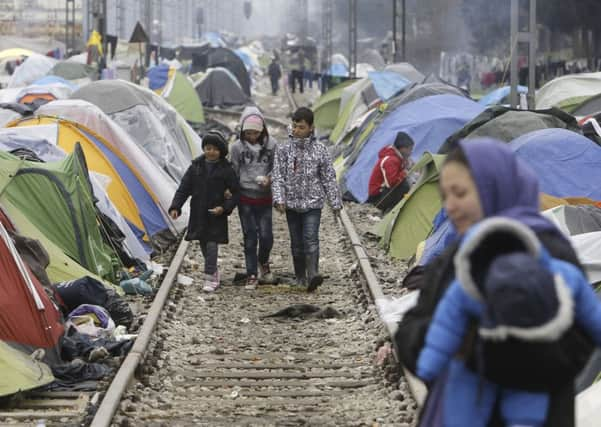Peter Garsden: Chance to redeem our shameful past


Sadly, it seems our nation’s chance to redeem itself may be passing us by, as our island mentality means we are closing the door on vulnerable, migrant children.
Have we not learnt from the failings of the past?
This week, former prime ministers, Sir John Major and Gordon Brown, will provide evidence at the public hearings into the Child Migrant Programme. The two hold opposing views about the British Government’s responsibility in the abuse of children snatched from their families nearly 100 years ago, and shipped across the globe and forced to work under a cloud of abuse and isolation from everything they knew.
Advertisement
Hide AdAdvertisement
Hide AdThis systematic relocation of children from deprived backgrounds to commonwealth countries took place between 1920 and 1978. They were promised a brighter future, yet reality was to prove both dark and sinister. Although this may seem like an issue from a different era, it feels strangely familiar to the migrant crisis of today. More than 80,000 migrants have already crossed the Mediterranean this year. They are being exploited and abused by people smugglers, and the most vulnerable of those are children, shipped off without their parents.
In the 1920s, Britain faced a growing issue of overcrowded orphanages and care homes. To alleviate the ‘problem’, the Government decided to systematically send thousands of children to other parts of the British Empire. Most were sent to Australia, New Zealand and Canada to help populate the colonies. Many were told they were orphans, and promised education, care and opportunity for a fresh start. Single mothers were coaxed into giving up their children so that they could have a better future.
Of the 130,000 children from vulnerable, deprived backgrounds that were sent abroad, 7,000 went to Australia. But instead of receiving a well-rounded education, they received farm schooling and were forced into hard labour. Siblings were separated and denied contact with their family back home. The children suffered great torment at the hands of the people who were supposed to care for them.
Despite evidence to the contrary, Sir John Major denied Britain’s responsibility in the abuse of the children his country effectively exported. It was Gordon Brown who finally made a public apology. Campaigners have since continued to demand answers from Sir John about why his Government so wholeheartedly denied its responsibility. This week, they may get their answers.
Advertisement
Hide AdAdvertisement
Hide AdSociety’s responsibility to protect its most vulnerable is one that never ceases, and it is absolutely vital that we learn from history to make sure failings are not repeated. Yet I can’t help but feel that this is exactly what is happening right now.
Humanitarian organisations have been raising the alarm for years – crying out for countries in Northern Europe to step in and help prevent the abuse, violence and trafficking which may otherwise become their destiny. Is anyone listening? Or are Governments turning the same deaf ear as they did when rumours of potential child abuse in Australia reached the British government as early as the 1950s. Back then, the programme was allowed to continue. Sadly, it seems our country has a history of failing to act, despite repeated calls for help – claiming that it simply isn’t our responsibility.
As a wealthy country with a history of letting down our nation’s most vulnerable, redemption lies not only in recognising our failures and offering appropriate compensation to the victims, but in taking responsibility for the vulnerable children of today – both inside and outside of our borders.
What happened to those British children that were shipped off to work in British colonies – suffering physical and sexual abuse – will never be repeated.
Advertisement
Hide AdAdvertisement
Hide AdBut by closing the door on vulnerable migrant children, we are complicit in their misery. In my view, these children need the same protection and support as British-born children are entitled to today. If we have learnt one thing from the past, it is that failing to protect children has widespread consequences for society and the world, for decades. We have a chance to prevent an era of pain; one which we must not squander simply because these children are not ours.
Peter Garsden is head of the Abuse Claims department at Simpson Millar and President of the Association of Child Abuse Lawyers